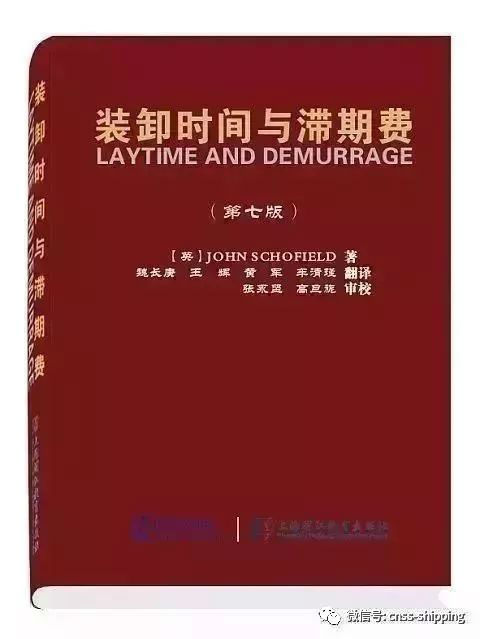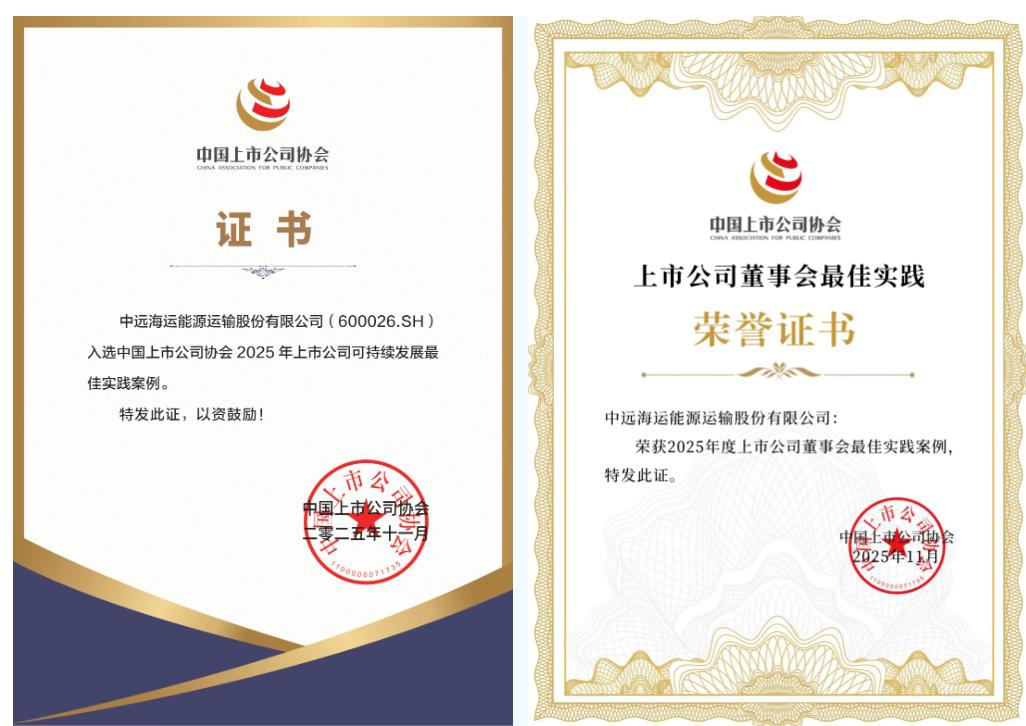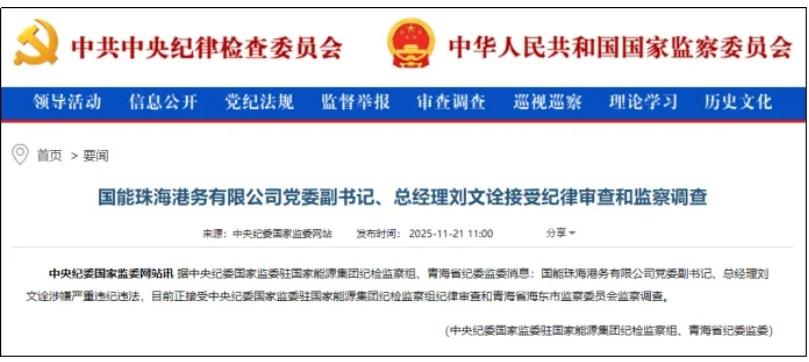《装卸时间与滞期费》第6版
CHAPTER 3 第3章
Commencement of laytime 装卸时间的起算
3.322 In London Arbitration 15/86, the tanker concerned tendered notice before berthing which was accepted by the refinery at about 2015 on the day the vessel came alongside. The tanks were inspected some eight hours later and found unsuitable for loading the intended cargo of kerosene, the specification of which was included in the charter. The charterers then rejected the notice and owners claimed they were estopped from denying its validity. However, the tribunal rejected this, saying an estoppel could not be established where a mere acceptance was followed by a rejection of the vessel not many hours later. There was no reliance by owners upon the acceptance of the notice and neither did they suffer any detriment by it.
3.322在报道的伦敦仲裁1986年第15号案,有关油轮在靠泊前递交了通知书,炼油厂在该轮靠泊当天约2015时接受了该通知书。大约8小时后对该轮进行检验,发现她不适于装载预期的货物煤油,其性能规格已在租船合同中有规定。接着,承租人就拒绝了这一通知书,而船东提起诉讼称他们被禁止翻供不能否定通知书的有效性。然而,仲裁庭驳回了这一观点,认为这一禁止翻供的主张不成立,因为拒绝这一通知书仅在接受的不多时间之后。在这里,船东没有依赖被接受的通知书,但他们也未受到任何损害。
3.323 In London Arbitration 15/87, a vessel was to load grain in the US Gulf. The charter required notice to be accompanied by a pass from the USDA. This was not in fact issued until a day after notice was accepted by the charterers’ agents. Notice was accepted some two hours after it was tendered and owners argued that as a result of its acceptance and/or the fact that the vessel was subsequently prepared for loading, the charterers had waived or were estopped from relying upon any defects in it. This was rejected by the arbitrators, who compared the factual scenario with that in The Shackleford, pointing out that two of the main factors favouring owners in that case were the difficulty they faced in establishing the true position and the closely connected identity of the charterers and their agents. In this case there was no reason to assume the agents could be identified more closely with their principals than any other independent port agent. The tribunal did, however, hold that laytime commenced after the requisite period specified in the charter after the pass had been issued.
3.323在报道的伦敦仲裁1987年第15号案中,某轮去美湾装载谷物。租船合同要求所递交的通知书必须附有美国农业部的许可证。实际上,该许可证在承租人的代理接受了通知书的1天之后才签发,而通知书在递交后两小时就被接受了。船东辩称说,既然通知书已被接受,而且事实上该轮随后业已做好了装货准备,那么承租人已经弃权或被禁止翻供不能再依赖通知书中的任何缺陷。这一观点遭到仲裁员的拒绝,他比较了Shackleford的实际案情后指出:在那个案子中对船东有利的主要两点就是,他们在确立真实情况所面临的困难,以及承租人及其代理二者身份的密切关系。在这一案中,相比港口其它任何独立代理人,这没有理由设想该代理与其委托人之间的关系更加密切。不过,仲裁庭判定:装卸时间应在合同中规定的该许可证签发之后一定时间起算。
3.324 A case where owners succeeded was London Arbitration 26/89. However, it should be noted that this case was decided before The Mexico I reached the Court of Appeal, the High Court in that case having taken a more flexible view on questions of waiver, estoppel etc and of course a number of years before the matter was reconsidered by the Court of Appeal in The Happy Day. It is included for the sake of completeness.
3.324在报道的伦敦仲裁1989年第26号案,是一个船东胜诉的案例。值得一提的是,该案是在The Mexico I 提交到上诉法院前判决的,当时高等法院对弃权、禁止翻供等问题持有非常灵活的态度。当然,这已是上诉法院在The Happy Day案重新考虑这种情况之前很多年的事了。也是为了本书的完整性才包括进来的。
3.325 At the time when notice of readiness was tendered, the vessel was still outside the commercial limits of the port and therefore not an Arrived ship. No new notice was tendered when the vessel came within the limits of the port. On this the tribunal said:
. . . there was no general rule that premature notice of readiness became automatically effective when a vessel became ready. The general rule was that a notice had to be valid when tendered and if it was invalid it was ineffective. Once the conditions for a valid notice had been met, a fresh notice had to be tendered. If it was not, the original notice could only be considered to have become effective in the event of the charterers having waived their contractual entitlement to a valid notice (which would in fact be a second or further notice).
3.325当递交准备就绪通知书时,该轮还在港口的商业区外,并不算抵达船。等进了商业区,并没有再递交新的通知书。针对这一点,仲裁庭认为:
……并不存在过早递交的准备就绪通知书,等到船舶确实准备就绪时便会自动生效的这一基本原则。所谓的基本原则是:通知书在递交时就必须是有效的,如果它是无效的,就不应起作用。一旦有效的通知书又遇到了什么新的要求,就应再递交一份新的通知书。若未这样做,只有当承租人放弃了合同所赋予他们的索要有效通知书(实际上就是第二份或更多份通知书)的权利时,这份原始的通知书才能起作用。
3.326 That statement is probably still true, but as well as waiver, laytime may commence as the result of ‘‘a bilateral agreement to vary the charter or the existence of what has come to be called ‘estoppel by convention’’’ or possibly estoppel by representation or conduct.
3.326这一陈述很可能仍然是正确的,但,如同弃权理论一样,由于“变更租船合同的双边协议或者存在有所谓的‘行为上的禁止翻供’的说法”,装卸时间也可以开始起算,或者很可能是陈述性禁止翻供或行动上的禁止翻供。
3.327 The arbitrators then went on to find that the charterers treated the notice as being effective because in reliance upon it they had the cargo available for immediate loading when the vessel berthed and the owners’ agents were given no reason to suspect anything amiss. They found that laytime began on arrival within the port. Following the Court of Appeal decision in The Mexico I, the tribunal might not have reached this conclusion. Whether preparing the cargo for loading is sufficient evidence of a bilateral agreement is a difficult question, as is whether a failure to present a new notice can provide the basis of an estoppel, in any form. Following the Court of Appeal decisions in The Mexico I and The Happy Day, whether the tribunal would still have reached this decision must be an open question.
3.327接下来,仲裁员又认定:承租人将该通知书视为有效的,因为,他们已经依赖它并安排了一靠泊即可装船的货物,而且船东代理也没有理由去怀疑有此谬误。他们裁决装卸时间应从船舶抵达港内时起算。遵照上诉法院对The Mexico I案的判决,仲裁庭是本不会得出这样结论。事先备好装船货物,是否是双边协议的充分的证据,还是一个尚未弄清的问题,或者说,未能再次递交新的通知书,是否提供了禁止翻供的依据,而不管是什么形式(导致禁止翻供)。遵照上诉法院The Mexico I和The Happy Day案的判决,仲裁庭是否仍旧得出这一裁决,必定是有待进一步讨论的问题。
3.328 This last point was, however, taken up in London Arbitration 6/90. In that case the arbitrator held the original notice to be valid, but one of the arguments put forward by owners was that if it was not, charterers were estopped from challenging its validity by reason of their conduct in making no comment for a month and a half after they had received the notice. On this, the arbitrator accepted the evidence of the owners’ broker that if there was any irregularity in a Notice of Readiness, the agents, charterers or receivers would be quick to draw attention to it. Had the owners in any way been alerted to a problem, they would have done something about it. The charterers countered that silence and inaction are equivocal and relied upon The Leonidas D. The arbitrator accepted this was true on occasions, but in the circumstances of the present case said it was highly improbable that an experienced ship’s agent would not reject a notice immediately if it was invalid or unacceptable. A reasonable man, especially one experienced in chartering and shipping, would expect an immediate objection to a faulty notice. There would inevitably be a reliance by owners on the actions or inactions of the agents and accordingly the charterers would be estopped from denying the validity of the notice.
3.328不过,后一点在报道的伦敦仲裁1990年第6案中曾被提及。在那个案例中,仲裁员判定初始的通知书是有效的,但船东提出的抗辩之一就是:若初始的通知书是无效的,则由于在收到后的一个半月内并未提出任何异议,承租人被禁止翻供质疑其有效性。在这一点上,仲裁员接受船东的经纪人给出的证据,即若准备就绪通知书有任何不正常,代理、承租人或收货人就应很快注意到它。如果船东,不管以何种方式被提醒到这一问题,就会马上着手做相应的处理。承租人反驳道:沉默和不行动,其意义介于两可之间不足为凭,而且也是依据Leonidas D—案。仲裁员也承认这样做在某些情况下是对的,但在本案情况下,作为一名有经验的船舶代理,面对无效和不可接受的通知书,他不予立即驳回,这是绝对不可能的。一位智力正常的人,尤其是在航运和租船业务有丰富经验的人,对那种有错误的通知书,立即会想到拒绝它。因此,船东不可避免地依赖了代理的行为或不作为,而相应地,承租人被禁止翻供再去拒绝通知书的有效性。
3.329 Whilst what the arbitrator said was true and justified from a commercial point of view, whether the courts will accept that these facts would give rise to an estoppel is more open to question. It would seem that in The Mexico I, the notice tendered was accepted and not rejected and a substantial period elapsed before discharge commenced without anything being said by the charterers. On those facts, the Court of Appeal was in no doubt there was insufficient to infer waiver, estoppel or agreement.
3.329尽管从商业角度看,仲裁员的说法是真实的并证明是正确的,但法院是否也接受这些事实会导致禁止翻供呢?这仍是一个悬而未决的问題。好像在The Mexico I案,通知书递交后被接受,也没有被拒绝,而且在卸货时间起算前很长一段期间内,承租人也没有提出任何异议。基于这些事实,上诉法院也毫不怀疑地认为这还不足于推论承租人弃权、禁止翻供或有协议。
3.330 The leading cases on defective notices must now be considered to be the Court of Appeal decisions in The Mexico I and The Happy Day. An outline of the facts in the former has already been given. Having rejected the inchoate theory relating to defective notices, either in its pure or modified form, Mustill LJ turned to the questions of waiver, estoppel and agreements to vary the charter, saying:
For my part I am sceptical about the deployment of the elusive concept of waiver, and would prefer to look for conduct from which one could infer either a bilateral agreement to vary the charter, or the existence of what has come to be called ‘‘estoppel by convention’’: namely, a situation in which the parties, having conducted themselves on the mutual assumption that their legal relations take a certain shape, cannot afterwards be heard to assert the contrary. I do not for a moment doubt that such a state of affairs, if proved to exist, could justify the conclusion that laytime began, after the giving of an invalid notice, but before the moment of actual discharge.
3.330对有缺陷的通知书必须审理的典型案例,现在是The Mexico I案和The Happy Day案。前一个案例的案情梗概我们已经讲过。Mustill大法官驳回了有关有缺陷的通知书是初步(通知书)的理论,不论它是纯理论形式的还是修改过的样式。然后他又转向弃权、禁止翻供和协议修改租船合同的问题。他说:
在我看来,很怀疑采用弃权这一难以捉摸的概念,更倾向于寻找他们的行为,看能否推断出一个更改租船合同的双边协议,或者存在所谓的‘行为上的禁止翻供’:即,这种情况是,双方共同假设他们之间已经形成了一种法律关系,并以此去行动,就不能在后来回头去推翻此共同假设。(因为这一来,其中一个后果就会表示对方以此共同假设去行动是做错了。)如果能够证明这种事实存在的话,目前,我不会怀疑这种情况能够证明这一结论是正确的:装卸时间在无效通知书递交之后,但在实际卸货之时前可以起算。
3.331 Turning to the case in question to see whether these principles had been met, Mustill LJ continued:
First as to the facts. Whatever precisely the doctrine, one would be looking for some kind of bilateral representation and action, on the basis that the contractual arrangement about laytime had been replaced by something new. What do we find here? A notice invalidly given. The arbitrators have found, via the statement of facts, that it was ‘‘accepted’’. (Often this would be by countersignature of a document. Since the notice here was rendered by telex, we do not know the form of the acceptance.) However, since, as the arbitrators point out, the acceptance must have been given in reliance upon the master’s implied assurance that the ship was ready for discharge, it cannot have any value. What else? Nothing, so far as the award is concerned. When the ship was ready to discharge the contractual cargo, there was no notification to the charterers or their agents. Nor is anything found in the award by way of an intimation on the part of the charterers they accepted that the laytime could now begin. It seems that the moment when the ship became ready for discharge passed in complete silence.
3.331针对所论及的案子中是否满足了这些原则的问题,Mustill大法官接着说:
首先看其事实。鉴于有关装卸时间的合约性安排已经被某些新的事物所代替,所以无论多么精确的理论,人们还是要寻找某种双边协议和行为。在这里,我们会找到什么呢?是一份无效递交的通知书!通过事实记录,仲裁员发现它竟然是被“接受”了。(通常这会是一份连署签名的文件,因为该案的通知书是通过电传递交的,我们无法知道其接受的形式)尽管如此,正如仲裁员所指出的那样,这一接受完全是依赖船长的默示保证做出的,即该轮已经做好了卸货准备。因此,它不可能具有任何价值。就那份裁决书而言,在没有其它内容。当该轮做好卸货准备时,承租人或其代理也未得到任何通知。在裁决书中,也没有通过暗示认定承租人方面同意装卸时间眼下已可以开始起算了。看来,船舶做好卸货准备的那个时刻完全是悄悄地宣布的。
3.332 He therefore concluded that these were thin materials indeed to infer any waiver, estoppel or agreement and found that there was none. The court therefore found that laytime did not begin before the commencement of discharge, although it would seem that had the parties not agreed that that was the latest it could begin, the court would have been prepared to consider an argument to the effect that it never began in the absence of a valid notice of readiness or bilateral agreement, etc. As was pointed out, this might have resulted in owners having to pay despatch on the full amount of laytime allowed.
3.332他因此下结论说:要用这些材料来推断弃权、禁止翻供还是互相协议实在是空泛无力的,其中哪一项也不是。所以法院认定:装卸时间未曾在卸货前起算。然而,如果当事双方不能同意卸货开始是最迟起算时刻的话,似乎法院就会准备考虑另一个论点,其效果将会是,在缺少有效的准备就绪通知书或双方协议等情况下,装卸时间就根本不能起算。正如所已表明的,这样一来,可能导致船东要为整个允许的装卸时间支付速遣费了。

《装卸时间与滞期费》购买链接(点击可购买)
海运圈聚焦专栏作者 魏长庚船长(微信号CaptWei)

 2019-03-13
2019-03-13 704
704 












